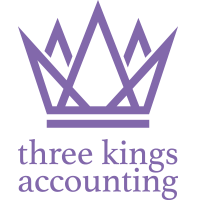Under corporation tax self assessment large companies are required to pay their corporation tax in four quarterly instalment payments. These payments are based on the company’s estimate of its current year tax liability.
Note that the overwhelming majority of companies are not within the quarterly payment regime and pay their corporation tax nine months and one day after the end of their accounting period.
We highlight below the main areas to consider if your company is affected by the quarterly instalments system.
Companies affected by quarterly instalment payments
Large companies
Only large companies have to pay their corporation tax by quarterly instalments. A company is large if its profits for the accounting period exceed the upper relevant maximum amount (URMA) in force at the end of that period. The URMA is £1.5 million.
The main rate of corporation tax is currently 19% and it will remain at that rate until 1 April 2023 when the rate will increase to 25% for companies with profits over £250,000. The 19% rate will become a small profits rate payable by companies with profits of £50,000 or less. Companies with profits between £50,000 and £250,000 will pay tax at the main rate reduced by a marginal relief, providing a gradual increase in the effective corporation tax rate.
Group companies
Where a company has one or more 51% related group companies, the URMA is reduced to the figure found by dividing that amount by one plus the number of related 51% group companies. The URMA is also proportionately reduced for short accounting periods.
So, if a company has three 51% group companies the URMA is £375,000. Any of the companies that have taxable profits exceeding that figure will be subject to the instalment payments regime. Those which do not exceed that figure will not be subject to the regime.
Some companies have many group companies and are treated as being large even though their own corporation tax liability is relatively small. Where the corporation tax liability is less than £10,000 there is no requirement to pay by instalments.
Changes ahead from 1 April 2023
The main rate of corporation tax is set at 25% from 1 April 2023. The small profits rate is 19%.
The small profits rate will apply to profits below the lower limit of £50,000 and profits exceeding the upper limit of £250,000 will be charged at the main rate.
Marginal relief provisions also apply so that, where a company’s profits fall between the lower and upper limits, it will be able to claim an amount of marginal relief that bridges the gap between the lower and upper limits providing a gradual increase in the corporation tax rate.
The lower and upper limits will be proportionately reduced for short accounting periods and where there are associated companies.
The related 51% group company test is replaced by associated company rules. This will be the case for its application for determining whether a company is large or very large for quarterly instalment payment purposes.
Broadly, a company is associated with another company at a particular time if, at that time or at any other time within the preceding 12 months:
one company has control of the other
both companies are under the control of the same person or group of persons
Growing companies
A company does not have to pay its corporation tax by instalments in an accounting period if:
- its taxable profits for that accounting period do not exceed £10 million and
- it was not large for the previous year.
Where there are associated companies or 51% related group companies, the £10 million threshold is divided by one plus the number of associates or one plus the number of 51% related group companies at the end of the preceding accounting period. The threshold is also proportionately reduced for short accounting periods.
This gives companies time to prepare for paying by instalments (but see below).
The pattern of quarterly instalment payments
A large company with a 12 month accounting period will pay tax in four equal instalments, in months 7, 10, 13 and 16 following the start of the accounting period. The actual due date of payment is six months and 13 days after the start of the accounting period, then nine months and 13 days, and so on. So, for a company with a 12 month accounting period starting on 1 January, quarterly instalment payments are due on 14 July, 14 October, 14 January next and 14 April next.
There are special rules where an accounting period lasts less than 12 months.
Pattern of payments for a growing company
If a growing company is defined as a large company for two consecutive years, the quarterly instalments payments regime will apply for the second of those years.
| The transition from small to large is best illustrated by an example.
A company with a 31 December year end was large in 2021 for the first time and is expected to be large in 2022. Its tax payments will be as follows:
As can be seen, the first instalment for 2022 is payable before the tax liability for 2021. It is therefore essential that budgets are prepared of expected profits whenever a company becomes large in order to determine:
|
Larger companies
Earlier dates apply for the payment of corporation tax for larger companies and groups, for accounting periods starting on or after 1 April 2020. For companies with annual taxable profits of £20 million or more, tax is payable in quarterly instalments in the third, sixth, ninth and twelfth months of their accounting period. For groups the £20 million threshold is divided by the number of companies in the group.
Working out quarterly instalment payments
A company has to estimate its current year tax liability (net of all reliefs and set offs) and then make instalment payments based on that estimate. This means that by month seven, a company has to estimate profits for the remaining part of the accounting period.
In particular note that tax due under the loans to participators legislation is also included.
A company’s estimate of its tax liability will vary over time. The system of instalment payments allows a company to make top-up payments – at any time – if it realises that the instalment payments it has made are inadequate. A company will normally be able to have back all or part of any instalment payments already made if later it concludes that they ought not to have been made, or were excessive.
Interest and penalties
Interest is calculated only once a company has filed its tax return, or HMRC have made a determination of its corporation tax liability and the normal due date has passed.
The payments the company makes are compared to the amounts that ought to have been paid throughout the instalment period. If a company has paid too much for a period compared to the amount of corporation tax that was due to have been paid, it will be paid interest. If it has paid too little, it will be charged interest.
Rates of interest
Special rates of interest apply for the period from the due and payable date for the first instalment to the normal due and payable date for corporation tax (nine months and one day from the end of the accounting period).
Thereafter, the interest rates change to the normal interest rates for under and overpaid taxes. This two-tier system takes into account the fact that companies will be making their instalment payments based on estimated figures but, by the time of the normal due date, should be fairly certain about their liability.
Interest received by companies is chargeable to tax, and interest paid by companies is deductible for tax purposes.
Penalties
A penalty may be charged if a company deliberately fails to make instalment payments, or makes instalment payments of insufficient size.
Special arrangements for groups
There is a group payment arrangement facility which allows groups to make instalment payments on a group-wide basis, rather than company by company. This should help to minimise their exposure to interest.
How we can help
If you think your company may be affected by the quarterly instalment regime, procedures will need to be set in place to estimate the liability.
We will be more than happy to provide you with assistance or any additional information required so please do contact us.


